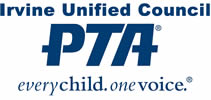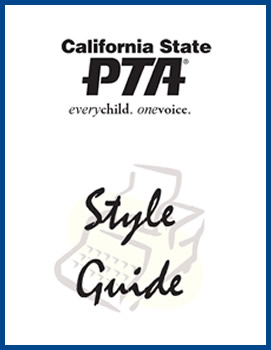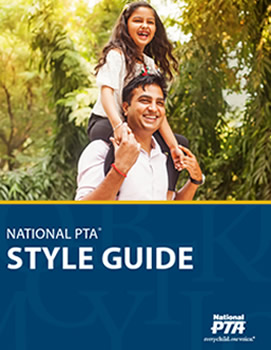Communications
Click Each Section Below to View More
Training
- IUCPTA Communications Training Slides 2024-25
- Social Media Overview 2024 –Video ( pswd H=8TEJ$z ) | slides
- Committee Report Form
- Communications Resources – Leadership Welcome
- The School Board & PTA
- Photography Release
- Media Training Video
- PTA Publications
- PTA Publicity in Community
- Multicultural Reference Guide
- Sponsorship vs Endorsement
- NatPTA Visual Identity Standards
- CaPTA Style Guide | NatPTA Style Guide
Sponsorship Guidelines
Sponsorship Guidelines
The law permits a non-profit organization such as PTA, without payment of income taxes and without risking loss of tax exemption, to receive corporate sponsorships. To learn more about sponsorship versus endorsements, click here.
Follow PTA’S Noncommercial Policy
- Do not make a qualitative judgment on the sponsor’s products or services.
- Do not include comparative language or language that implies good quality in the acknowledgment.
- Do not permit the sponsor to write the acknowledgment of thanks.
- Do not ask your members or the public to buy the products or services of the sponsor.
- Do not advertise a product or service.
- Do not endorse a product or service.
Acceptable Acknowledgments (Good Word)
This includes the transmission or display of a sponsor’s logos and slogans that do not contain comparative or qualitative description of its products and services. It may include sponsor locations, telephone numbers, and value-neutral description of a sponsor’s product line or services.
Unacceptable Acknowledgments that include advertising (Bad Word)
To the extent that the acknowledgment exceeds mere identification and, instead, promotes the sponsor’s product or services, the recognition may instead be treated as advertising rather than an acknowledgment. Price information would generally be treated as advertising rather than acknowledgment. Any inducement to buy, sell, rent, or lease a sponsor’s product or service would likewise be treated as advertising rather than donor acknowledgment.
Permissible Activities
- Give the corporate sponsor an acknowledgment of thanks in return for the donation.
- Identify the sponsor’s name, a picture of their product, an address, phone number, web page, and/or including URL if on website.
- Include the logo or slogan of the sponsor for example: “Ford, Where Quality is Job One” or “Ford, Makers of Lincoln Mark VII”.
- Provide free product samples. For example, it is acceptable to have a banner which states, “Pepsi: Valued sponsor of the California State PTA Convention – free samples at Booth 56″
Prohibited Activities
- Do not include any comparative statement such as, “MCI is better than AT&T!” or “Chevy: Best Car in America!”
- Do not call for someone to purchase a product. For example, “List your home with Century 21 today!” or “Wells Fargo: Open an account today!”
- Do not hang a banner which states, “PTA hates Coca-Cola and loves Pepsi.”
SOURCE: March 2007 issue of the California State PTA publication, “The Communicator”.
PTA does not sell ads or ad space!
DO NOT sell advertising for advertising sake. PTA DOES thank sponsors and donors for supporting things like events, event program booklets, websites, communications, yearbooks, etc. and we THANK them by acknowledging them as described above.
Include a statement like this wherever appropriate:
XYZ PT(S)A does not endorse any commercial entity, product or service.
Example of footer at bottom of National PTA newsletter:
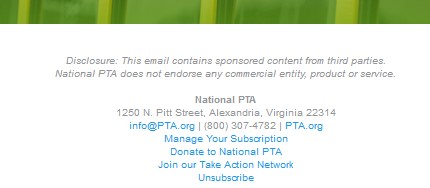
Tools & Resources
- Google Nonprofit Workspace (Drive, Email, Video Conferencing)
- TechSoup
- Canva for Nonprofits
- Royalty Free Stock Images
- MailChimp Email Marketing for Nonprofits
- IUSD Print Shop
- Customize Your PTA Logo | NatPTA Visual Identity Standards
- Holiday Communication Tips
- Save and Copy the following animated gif to use on your website:
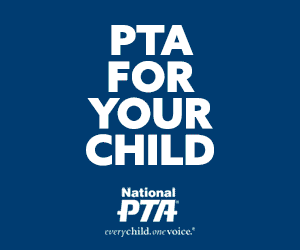
Tips & Examples
- PTA Email
- Newsletter

- Online Platforms
- PTA Surveys
- Writing for Busy Families
- Donation Requests
- Donation Receipts
- How to Communicate with IUSD
- How to Communicate with PTA
- Flyers & Banners
- Teleconference Guidelines
